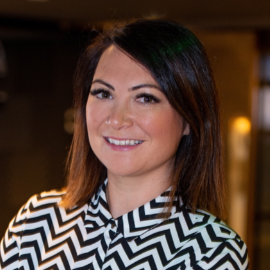What are your thoughts on hybrid/flexible working? There’s no doubt that the pandemic brought about so much upheaval in all aspects of our lives, but it also transformed the way in which we now work. One of the most significant shifts has been the rise of hybrid flexible working.
As we all navigated the aftermath of the many lockdowns (still makes me shudder just thinking about it) the world went into a new way of working; from companies who wouldn’t allow you to leave ten minutes early for a doctors appointment to then being forced to stay at home and deal with zoom calls (‘You’re on mute Malcolm…’) the working world suddenly shifted and many businesses grappled with the new norm.
Now, two years on I want to look back and reflect over the rise of working from home, and the positives (and impact) that that can have within the world of marketing agencies specifically.
Lessons learned
- Enhanced work/life balance: I think the pandemic taught us the importance of work-life balance; it forced us into it. Flexible working has now made it possible to achieve more of it than before. Employees now have the flexibility to structure their workday around personal commitments, leading to reduced burnout and improved mental well-being.
- Access to more talent: Geographical constraints of traditional office settings are no longer a barrier, and marketing agencies can now tap into a global talent pool, recruiting people regardless of their location. This boosts diversity and also brings fresh creativity and perspective to the table.
- Increased productivity: Contrary to initial scepticism, many marketing agencies have reported a boost in productivity with flexible working. The absence of daily commutes and fewer office distractions have allowed employees to concentrate on their tasks, resulting in efficient work outcomes.
- Cost savings: This goes for both employees and employers. Employees save on commuting (and lunch) expenses, while agencies can reduce overhead costs associated with maintaining a large office space.
A match made in heaven
Marketing agencies are known for housing creative and dynamic folk, and I believe those are the ones who have really embraced the WFH benefits.
- Collaboration knows no bounds: The marketing landscape thrives on collaboration and brainstorming – every week we’d have a start and end of week in-person meeting – now with digital, we just do this online. Infact we’ve had more of our team join the calls as we can shift timings to suit all locations!
- Improved client relationships: Flexibility in working hours allows people to align their schedules with clients from different time zones, enhancing communication and building stronger relationships. Need to work til 8pm? Just start a little later in the day!
- Tailored environments: Some marketers find their creative juices flowing more freely in the comfort of their home, while others prefer the energy of a bustling office. Working in a flexible way accommodates the best of both worlds and ensures that each individual can work in an environment that suits them best.
Navigating challenges
While the benefits are noteworthy, there are challenges that marketing agencies must navigate:
- Maintaining Team Cohesion: The spontaneous interactions and water-cooler conversations that foster camaraderie can be harder to replicate in a remote or hybrid setting. Agencies need to be proactive in organizing virtual team-building activities to bridge this gap.
- Communication Hurdles: Clear communication is the bedrock of successful marketing campaigns. Hybrid flexible working demands intentional efforts to ensure that communication lines remain open and effective across virtual channels.
- Performance Assessment: Evaluating the performance of remote or hybrid employees can be complex. Agencies need to establish transparent metrics and assessment methods to ensure fairness and accountability.
The pandemic has expedited the evolution of how we work, particularly in marketing agencies. The positives of flexible working outweigh the challenges. But I do believe we all need human to human connection in whatever form that takes!
